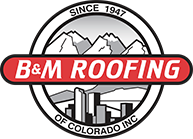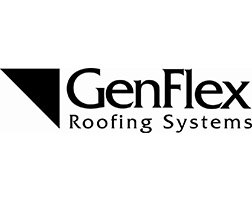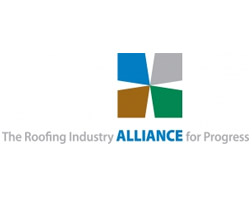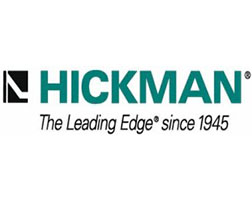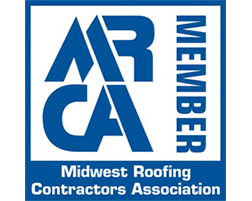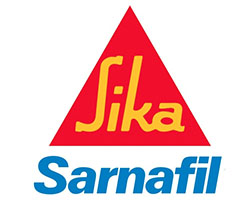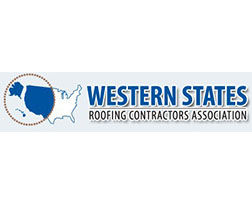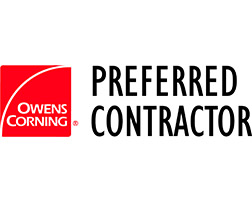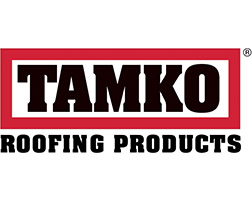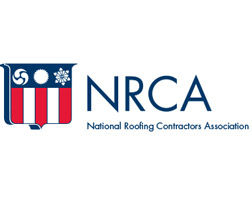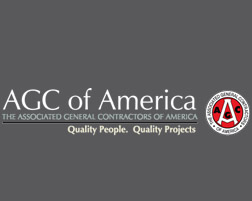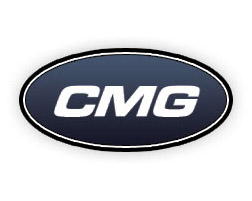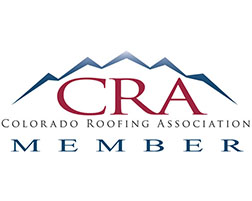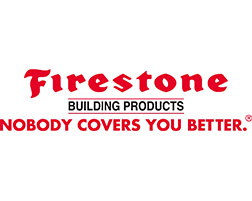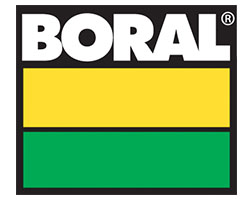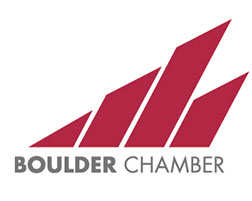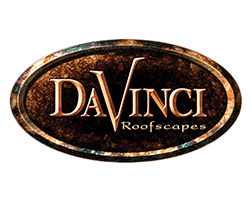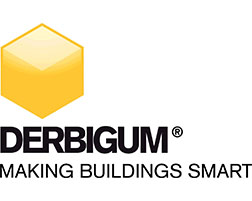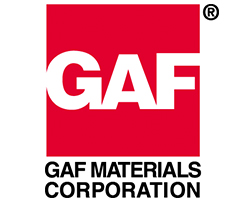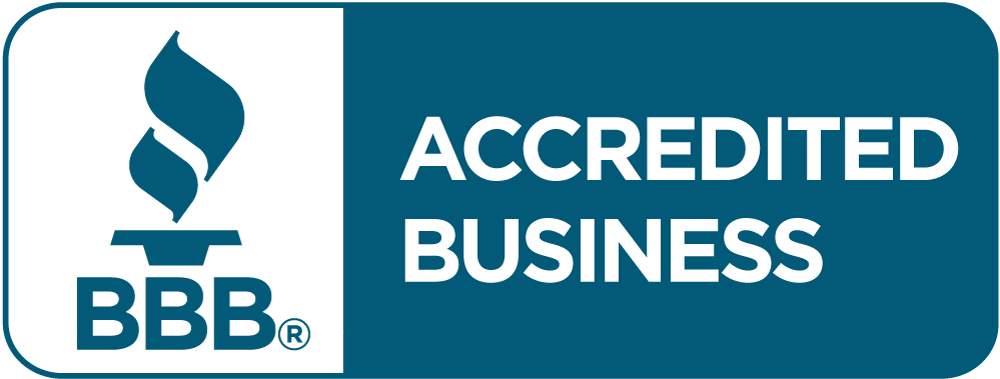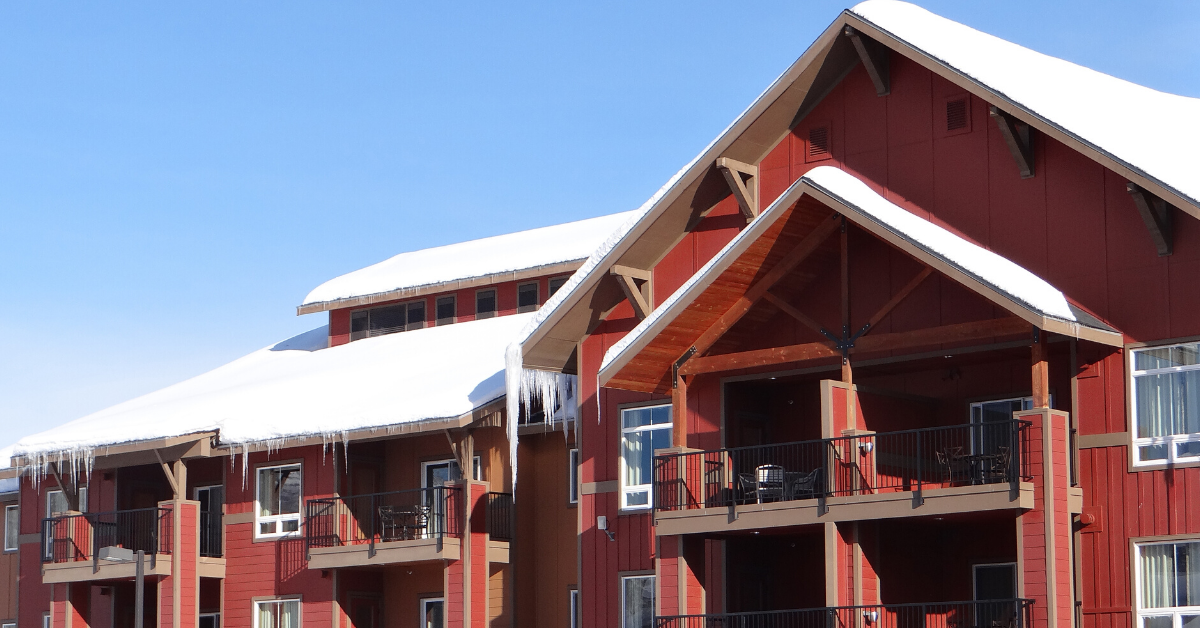
What Type of Roof is Best for Snow
Colorado’s heavy snowfall can be impactful for all residential and commercial roofs. Given that snowfall is a regular occurrence in the Centennial State, it’s best to know how to protect your roof from heavy snowfall and the damage it can often inflict. What type of roof is best for snow? With advancing technologies, roofing materials have evolved, allowing for more application and better performance against harsh, inclement weather. Now, there are several types of roofs that offer excellent snow protection.
These are roofs that ensure that, no matter the intensity of Colorado weather, your property is protected. Let’s review a few types of roofs that are best for snow.
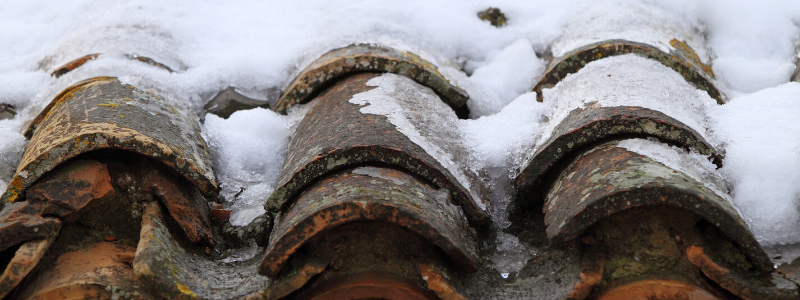
How Does Snow Affect Commercial And Residential Roofs?
Even though commercial and residential roofs are, generally speaking, quite different, the effects of snow are very similar. Most of the problems that snow presents, to roofs, have to do with the weight of snow and whether or not a roof can remain sturdy while being covered in snow. Beyond that, snow can also lead to cracks in the roof, ice dams, damaged gutters; as well as a plethora of other, equally difficult, problems.
One of the most common problems snow causes – to both commercial and residential roofs – is that of straining the roof. Every roof is only capable of holding so much weight, and if there is too much snow on a roof, then that roof will be unable to remain sturdy. When this happens, it isn’t uncommon for a roof to slowly break down or collapse completely.
Even if there’s just a small amount of snow on a roof, that small amount of snow can lead to big problems. This is especially true if the snow melts and then freezes again, turning into ice. When that happens, large blocks of ice can form. These blocks of ice can easily strain the roof, leading to the same problems that heavy snowfall often leads to. Plus, if ice is present on the edges of the roof or in the gutters, then the flashing can be torn off the roof and the gutters can break down.
When there is too much snow on a roof that isn’t well-equipped for it, this can lead to small cracks being created along the roof. These can be difficult to notice – especially if there’s still snow on the roof – but they often lead to significant problems. If water flows into these cracks, it can lead to water leaking into the building. But, if water flows into the crack and freezes, then the crack will grow and expand. If these problems aren’t treated, then the entirety of the roof’s structure can be damaged completely.
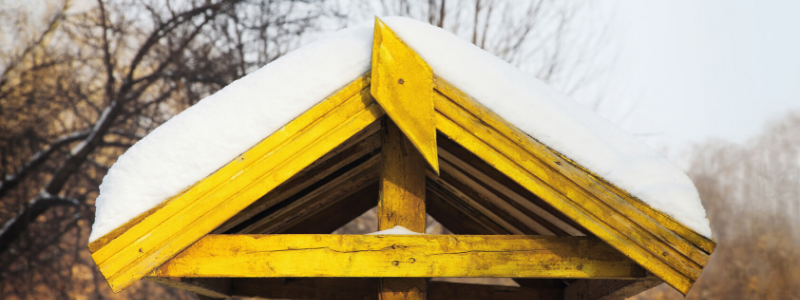
In What Ways Does Colorado’s Weather Affect Commercial/Residential Roofing Needs?
Every year, the state of Colorado experiences, on average, anywhere from sixty-to-one-hundred-inches of snow. Since Colorado experiences so much snow, commercial and residential properties in Colorado must have roofs that are built for snow, as well as the cold temperatures and ice that follow. Without adequate roofing, commercial and residential properties are far more likely to experience damages related to snow, ice, and cold temperatures.
Since Colorado experiences so much snow, and on such a regular basis, residential and commercial roofs must be well-equipped to handle that snow. But, if they aren’t capable of handling large amounts of snow, as well as protecting against ice and cold temperatures, then this can easily lead to damages.
Throughout the years, Colorado has experienced its fair share of snowstorms. Snowstorms are far more severe in their effects, with regards to roof health, than regular snow, because snowstorms bring far more snow than a regular snow event. When a significant amount of snow piles on your roof, this can lead to the roof becoming unstable and breaking down, simply because it isn’t capable of holding that much snow.
When a snowstorm passes, though, and the sun rises – just as it does 243-days of the year, on average – all of that snow will begin to melt. As all of that snow begins to melt, it will fall into the cracks and crevices that are located all across your roof. Alternatively, it may melt, freeze again, and form large blocks of ice that, due to their size, damage a large portion of your roof.
- Colorado experiences a lot of snow, every single year
- Snowstorms are also a relatively frequent experience in Colorado
- Since Colorado experiences so much snow, the probability of roof damage is greatly increased
- Snow, ice, and cold temperatures can lead to roof collapse, cracks forming in the roof, and chunks of the roof falling apart due to ice blocks forming
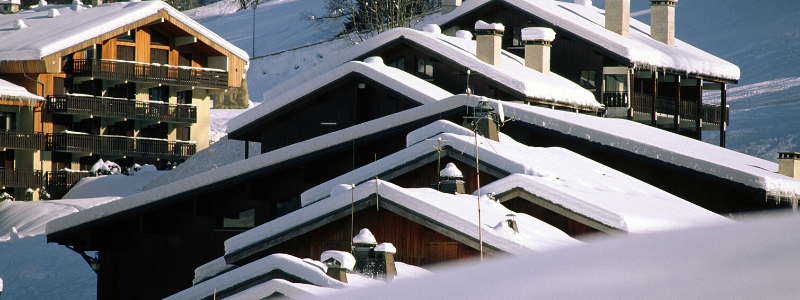
What Type of Roof is Best for Snow?
For commercial and residential properties, there are certain types of roofs that are ideal for the frequent snow that Colorado experiences. These roofs offer features and design traits that allow them to remain strong and sturdy, no matter how snowy, icy, or cold it is. Because of those qualities, these are the best roofs for snow.
Metal Roofing Colorado
For a commercial and residential property in Colorado, a metal roof is exceptionally useful. Since metal roofs are made of metal, they can withstand large amounts of snow piling on top of them. But, along with that, the design of most metal roofs ensures that snow and ice will simply slide off of the roof, rather than becoming stuck to the roof.
Cement Roofing Colorado
Cement roofing isn’t as common, due to its high price, but it’s one of the best roofing materials to have for protecting against the snow. Cement is one of the strongest roofing materials available, and it’s capable of holding a large quantity of snow and ice, while also protecting against heavy winds. Plus, due to the density of cement, no moisture can flow into the middle of the roofing structure and freeze.
Slate Roofing Colorado
Slate roofs are not only quite beautiful, but they’re some of the strongest roofs available. Due to the durability and strength of slate, it’s capable of withstanding heavy snow, hail, ice, wind, and fire. Most slate tiles work well on sloped roofs, as well, making it easy for snow, ice, and rain to flow off of them. But, while slate is a strong material that’s perfect for Colorado’s weather, it is very expensive.
